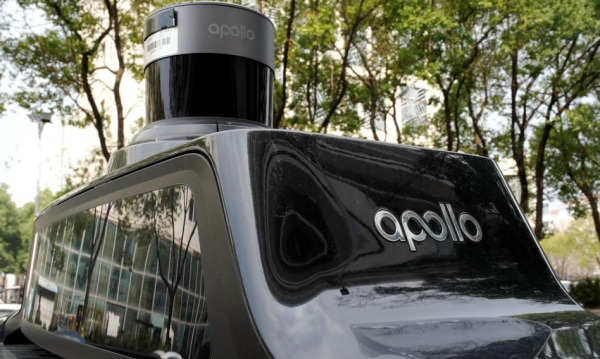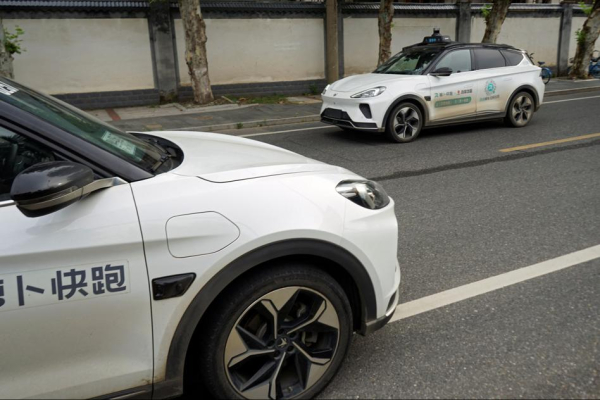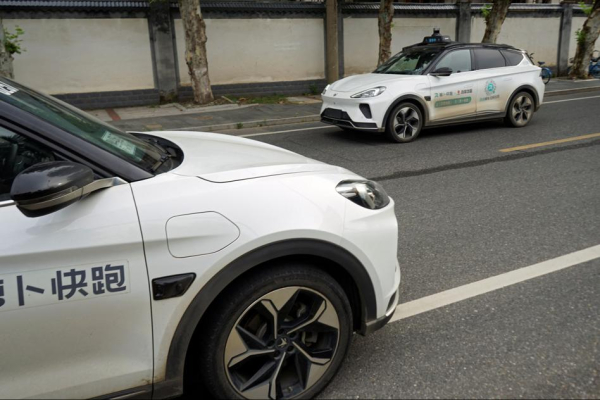A new, rapidly developing front has emerged in the global technology race – autonomous transport. Chinese companies are increasingly boldly moving beyond their own market, looking for opportunities to expand in Europe. One of them has just taken a significant step that could change the balance of power on the world's roads.

As Chinese technology companies seek to dominate the global autonomous vehicle market, Baidu is in talks to begin testing robot taxis in Europe.
The Chinese giant is knocking on Europe's door, but the Swiss are still cautious
The Beijing-based company, which is seen as China's equivalent of Google, is set to partner with Switzerland's national post office and also plans to launch a market entry into Turkey.
See alsoHow artificial intelligence will affect the work of accountants
Baidu plans to open an office and test its robot taxis in Switzerland by the end of this year, building on the Helvetians’ “open approach” to innovative mobile technologies.
However, for now, the Swiss postal service has said it has not entered into any cooperation with Baidu or any other provider of new technology, although it is already considering issues related to its future mobility and customer needs.
A statement from the company said Robin Li, co-founder and CEO of Baidu, told investors that 2025 would be a “pivotal year” for expansion, adding that the company had identified potential partners among taxi companies and fleet operators, using a “low-capital” expansion model.
Autonomous Offensive: From Canton to Luxembourg and Zurich
Baidu already operates in more than 10 cities in China and has a pilot program in Hong Kong. The plan to expand its autonomous fleet abroad is part of a broader trend among Chinese tech companies. Guangzhou-based WeRide this year launched tests of its robobuses in Valence, France, and at Zurich Airport, while Pony.ai announced it had been granted permission to test its robotaxis in Luxembourg.


Apollo Go self-driving cars. (photo: Sarah Wu / FORUM)
This year, Uber struck deals with three Chinese self-driving technology companies – WeRide, Pony.ai and Momenta – to deploy their robotaxis to Uber’s fleet in global markets like Europe and the Middle East.
The race to develop autonomous vehicles has become a new arena of rivalry between China and the West, which is already lagging behind in the race for dominance in the electric vehicle market.
American Concerns About Chinese Robot Taxis and New Technologies
The growing number of technologically advanced Chinese cars has also raised security concerns in Washington.
Last year, the Biden administration moved to ban Chinese software for connected cars, citing national security risks and the potential for spying on drivers. Meanwhile, Hesai, China’s largest maker of lidar sensors, commonly used in robo-taxis, was blacklisted by the Pentagon for ties to the Chinese military. Hesai has denied any such links.
According to China's Ministry of Public Security, autonomous driving test zones have been approved on 32,000 kilometers of roads in about 20 Chinese cities, including Beijing, Shanghai, Shenzhen, Chongqing and Wuhan.
This week, a Pony.ai robotaxi caught fire in Beijing, the first such incident to spark a debate about the technology’s safety on social media.
The company said in a statement: “There was no collision and no one was injured. The exact cause is currently being investigated.”
Robot Taxis Are Taking Over the Market, Expected to Grow by Hundreds of Percent by 2030
Despite industry concerns about safety and insurance regulations, Goldman Sachs analysts predict that more than half a million robotaxis will be operating in major Chinese cities by 2030 .
The share of robotaxi taxis in the global on-demand fleet is expected to grow from less than 1% in 2025 to 9% in 2030, increasing the market value from $54 million today to $47 billion annually (about 870 times more ).
Goldman Sachs analysts noted that the current leaders in the autonomous vehicle sector – Baidu, WeRide and Pony.ai – have an advantage due to “high technological barriers” to competition and an advantage in developing algorithms and collecting the necessary data for large-scale deployments.
Baidu, China’s largest robotaxi operator, said its Apollo Go vehicles made 1.1 million passenger rides in the fourth quarter of last year, up 36 percent from the same period a year earlier. Through January, the total number of rides since the service began has surpassed 9 million.
Details of Baidu's expansion into Europe were first reported by the American daily “Wall Street Journal”. The Chinese company has not commented on the reports.
JS






